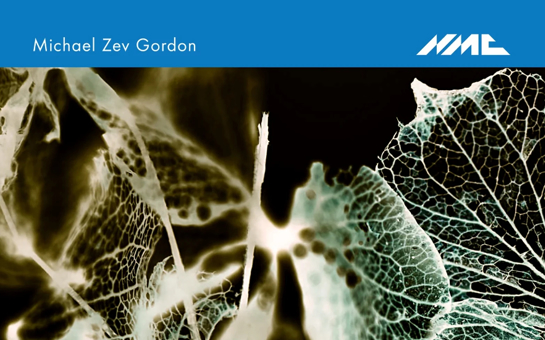







Ten years have passed since the momentous atrocity committed upon the United States in September 2001. To mark the event two large-scale works by Music Sales composers have been commissioned to meditate on the legacy of that day, its place in the history of war and suffering, and what the future may hold for those affected.
John Corigliano’s One Sweet Morning will receive its world premiere on September 30 by mezzo-soprano Stephanie Blythe and the New York Philharmonic with music director Alan Gilbert. The Shanghai Symphony Orchestra co-commissioned the piece with the New York Philharmonic and will present their performances with mezzo-soprano Sasha Cooke and conductor Lan Shui on May 26 2012.
In the Composer’s Words:
When Alan Gilbert asked me to write a work commemorating the 10th anniversary of “9/11”, I frankly had no idea what to do. I did know what not to do, and that was to write a piece of abstract orchestral music.
Alan wanted a large-scale work – approximately a half hour in length. While I could see writing an orchestral meditation, I could not see extending that to a half-hour (Mahler notwithstanding.)
And if I wrote a work that had meditative sections, but also dramatic and extroverted sections, then I would fall into a terrible trap. So many in the audience of this piece will have images of the frightful day itself — jet liners crashing into the World Trade Center, people jumping to their deaths from the top of the buildings, and the final collapse of the towers themselves — burned into their retinas. How can one hear music of any dramatic surges without imagining these events accompanying the music — or vice versa? Inevitably, the piece would become a tone poem of that unimaginable day – something I never intended and did not want. Yet how could I instruct the audience to ignore their own memories?
Obviously, then, I needed to write a piece with words. I needed other images both to refute and complement the all-too-vivid ones we’d bring with us into the concert hall. But which images: and how would they pertain to the subject, as well as each other?
The answer was as obvious as it was dispiriting. Ten years later, that day is more calmly remembered as just one in a continuum of terrible days. September 11th, 2001 was discrete and specific: but war and its anguishes have been with us forever. I needed a cycle of songs that would embed 9/11 into that larger story. So I chose four poems (one of them part of an epic poem) from different ages and countries.
The first poem — Czeslaw Milosz’s “A Song on the End of the World”, written in Warsaw in 1944 — sets a tranquil scene: a vista of serenity that still hints at the possibility of chaos to come. The poet’s descriptions of everyday matters turn chilling when he notes, “No one believes it is happening now.” My setting for these words is hushed and motionless, never rising in volume and intensity.
Shattering the calm is the second poem: that portion of Homer’s Iliad chronicling a massacre led by the Greek prince Patroclus. Each kill is described in detail; the music, too, strives for the brutal and unsparing.
“War South of the Great Wall”, by the 8th century poet Li Po, follows. Its cool, atmospheric language views a bloody battle from a great remove: warriors seem to “swarm like armies of ants”. The narrator’s poise collapses only when she reveals “my husband – my sons – you’ll find them all there, out where war-drums throb and throb.” Her anguish, and the battle that is its cause, surge in an orchestral interlude, climaxing with the orchestra alone meditating on the narrator’s themes.
The orchestra, diminishing in intensity, introduces the poem that gives the cycle its name: “One Sweet Morning”, by E. Y. (“Yip”) Harburg, a name that might surprise audiences who know it principally from his sparkling lyrics for such plays and movies as “The Wizard of Oz” and “Finian’s Rainbow”. But Harburg also wrote a few volumes of light and not-so-light verse, and it was in one of those that I came upon this deep and tender lyric.
“One Sweet Morning” ends the cycle with the dream of a world without war – an impossible dream, perhaps, but certainly one worth dreaming. In this short poem, Harburg paints a beautiful scene where “the rose will rise…spring will bloom…peace will come…one sweet morning.”
Just over ten years to the day since the momentous events of the 9/11 attacks, The Cheltenham Festival and the Lighthouse in Poole will present concerts on September 11 and 13 which climaxes with a performance of Novello composer Richard Blackford's new work Not in our Time.
The new work by Blackford, commissioned by the Bournemouth Symphony Chorus to mark their Centenary in 2011, takes the attack on the World Trade Centre as the focal point of a work that explores the theme of war declared in the name of religion - from the speeches of George Bush and Barack Obama to the 11th century texts of the First Crusade. This poignant juxtaposition of texts alongside the vast emotional range of the symphony orchestra gives voice to the complex questions that surround these events. In the words of the composer, "perhaps it's through poetry and song that we can look unflinchingly at this tragedy of our time and offer some hope of reconciliation for the next generation."
September 11, Cheltenham Festival
September 13, Lighthouse, Poole
Please click here for more News






